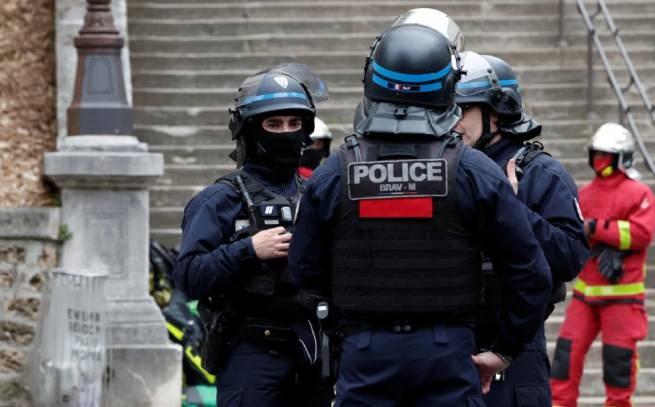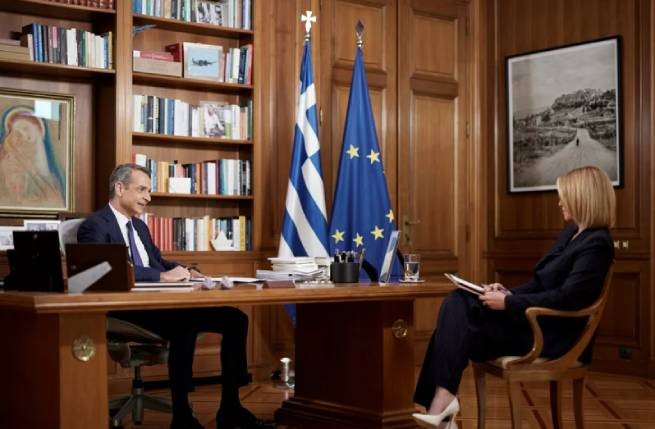Soldiers from Russia who were captured in Ukraine are kept in pre-trial detention centers and prisons. How their rights are respected, the correspondent of Deutsche Welle, who managed to communicate with them, understood.
Russian prisoners of war are provided with everything necessary – food, walks, books. For obvious reasons, the correspondent does not say exactly where the pre-trial detention center is located, where he has been, but tells in detail about his communication with the prisoners. They are kept separate from other prisoners, and in their situation this is the safest option. In this case, the Russians occupy the second floor of the SIZO building.
Accompanied by guards, the reporter enters one of the cells, where there are 7 men of different ages. They are not surprised by the appearance of the correspondent – representatives of the Red Cross and the UN come to the chambers weekly. All cellmates are contract soldiers and willingly talk, telling their stories. Everyone has their own, but there is one thing in common: “We were deceived a little,” they say. A novel from Vyborg, Leningrad region:
“To be honest, we were deceived a little. Initially, it was promised that we would deal with humanitarian aid. I was immediately thrown into the dark on the front line.”
Roman was wounded in the Kharkov region. According to him, after the capture, the Ukrainian military provided him with first aid. Another interlocutor – Artyom, an ordinary tank troops – is more talkative. He admits that he consciously decided to take part in the “special operation” after seeing the “newsletter on the Internet.” At the invitation in the ad, he went to Donetsk. For 2-3 days of training, he became the driver of the T-72 tank and ended up near Zaporozhye. The tank was hit, and Artyom was taken prisoner by the military of the Azov regiment. The Russian says: “I didn’t see any fascists,” they fed him and even gave him cigarettes. He calls the Russian army “marauders and murderers.” To a reporter’s question DW about what caused his participation in the war, he answers:
“Yes, I’ve seen enough … We, you know, have a very beautiful story on TV, supposedly we are going to fight for a just cause, but in fact this is not at all the case. Only here our eyes were opened.”
The cell is cramped, but clean. Everyone has their own dishes, spoons and forks – metal. The latter, as the guard explained, is due to the fact that the prisoners are not aggressive: “They have nowhere to run, they are just waiting for an exchange.” Dinner arrived: through special openings in the door, the prisoners receive borscht and porridge. Three meals a day. The schedule that hangs in the corridor indicates the time of the walk, personal time, daily bath.
In the next cell, young people – three guys aged 20-21 years. Dmitry assures that on February 24 he “accidentally” came to the war in Ukraine from the Belgorod region: “We were not told where we were going. Everyone already knew that we were on the territory of Ukraine when they saw license plates, flags … I asked the commander that we were here Received the appropriate answer: “Don’t ask unnecessary questions, go straight.” Dmitry laid down his arms and surrendered on February 27, near Pryluki in the Chernihiv region, after his tank was knocked out.
Oleg from Karelia says that in March he renewed his contract with the Russian Armed Forces, but his expectations were not met:
“After watching the news, I believed that we were going to help, that the nationalists were here, there was a war going on, they were killing and torturing them. I didn’t see a single nationalist here. When we entered the villages, people frankly told us: “Go away, you have nothing here to do. “This is such pressure. It seems that you are bringing humanitarian aid to them …”.
When Oleg signed the contract, he was promised training and service in the rear. However, three days later he was near Kharkov. He was a platoon commander and claims that his unit tried to return from Ukraine to Russia, but the command forbade it. At some point, Oleg and his subordinates were left without communication, and soon, near the village of Veseloye in the Kharkiv region, they were taken prisoner by the fighters of the Armed Forces of Ukraine.
A logical question arises: can prisoners of war be trusted? Everyone who spoke with the correspondent assured that they repented of participating in the war on the territory of Ukraine and did not fire at peaceful villages and cities. Investigators did not find evidence of their committing war crimes, although they checked on a lie detector.
By the way, in the same pre-trial detention center, as its employees say, Vadim Shishimarin, who was recently sentenced to life in prison. Only on a lie detector did he admit that he shot at a civilian in the Sumy region and killed his.
In a conversation with a representative of the publication DW, not a single prisoner of war complained about the bad attitude or conditions of detention. Roman from Vyborg notes:
“Every day they come in and ask if you need something – no questions asked. If possible, they provide it to us. The food is balanced.”
Data from the Ministry of Justice show that each prisoner needs about 3,000 hryvnia (6,400 rubles) a month – food, clothing, hygiene products. To this must be added medicines and the cost of honey. equipment. Well, the salary of service personnel. However, these costs are inevitable and justified, says Deputy Minister of Justice Elena Vysotskaya. The conditions of detention of prisoners of war comply with the Geneva Convention, and the prisoners themselves are a necessary exchange fund for the return of captured Ukrainians.
The head of the UN human rights mission in Ukraine, Matilda Bogner, notes that there is information about cases of improper treatment of the Russian military immediately after their capture. But in the pre-trial detention center, where Russian prisoners of war are kept until the exchange, the conditions are satisfactory.
However, representatives of the UN mission note violations in the treatment of Ukrainian prisoners of war in Russia and in the territories controlled by the LPR, DPR, both immediately after being captured and in their places of detention:
“They can also be tortured there. As far as we understand, the conditions can be bad: lack of food, unsanitary conditions, rude attitude from the prison guards.”
The UN calls on both sides to moderate emotions and treat prisoners of war humanely. There is no official information on the number of prisoners of war in Ukraine. Due to periodic exchanges and the continuation of hostilities, their number is constantly changing. However, the Russian prisoners hope for an exchange and are waiting for it. As 20-year-old Dmitry, who has been in captivity for 3 months, says, “hope dies last.” He really wants to return home and has no plans to serve in the army ever in the future.






More Stories
Poland is ready to assist Ukraine in the return of draft dodgers
First negotiations between Ukraine and the Russian Federation on displaced children (video)
"Inflated hopes and delay in the onset" – what to expect on the battlefield in Ukraine